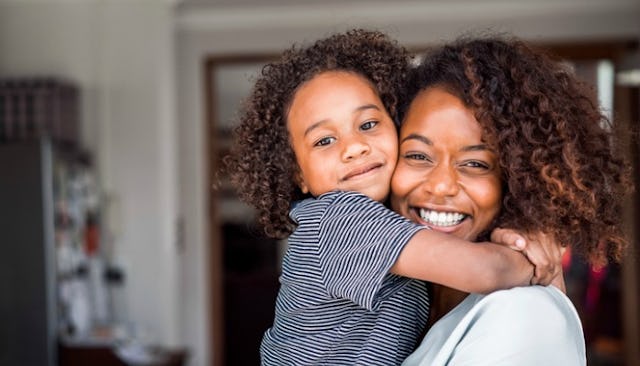This Is Why I Identify As A Single Mother By Choice

I read with great interest a story published in the Washington Post by Julie Kohler rejecting the term “single mother by choice,” saying that it creates a false hierarchy of single mothers — implying that some single mothers are better than others.
While the article does a decent job at articulating the reason for the rejection of the term “single mother by choice,” it leaves out many women. Historically, the term has been associated with straight, upper-middle class white women who use their resources to become mothers with or without a partner. In this sense, the term does feel both elitist and classist. Queer, low-income women, and women of color single mothers by choice are erased from this narrative.
For me, identifying as a single mother by choice is a political and defiant act of asserting my bodily integrity and reproductive choice in a society that doesn’t value black motherhood and most certainly black single motherhood.
When I decided to become pregnant, I was 33 years old, and in the prime of my career, running a major research center at New York University. I knew I wanted to become a mother and felt like there would always be an excuse for why it wasn’t the right time: my career, shaky finances, small New York City apartment, or not having found the love of my life. However, none of those reasons mattered to me.
Up to that point, my nights had consisted primarily of hanging out with friends at a local pub that we affectionately dubbed the Southern office (because it was downstairs from our real office) until the wee hours of the night. When I announced during one of our after-hour roundtables that I was going to get pregnant on my own, jaws dropped. “Are you sure?” they said. Yes, I’m positive. Then we raised a glass and began to plot.
Around Valentine’s Day 2009, I became pregnant with twins through IVF, a costly and lengthy process that is out of reach for many women with reproductive challenges, in or outside of a relationship, particularly women of color and low-income women.
At the Center for Reproductive Care at Columbia University and in my birthing classes, I was surrounded by couples and was very often the only one there without a partner. In both instances, I didn’t see many, if any, women of color. I didn’t care. My doctor was very affirming in a “You can do it,” Rosie the Riveter kind of way.
When my stomach began to bulge, one of my white friends asked if I were concerned about being perceived as a young, single black mother — which I took to be code for being worried about the stereotypes about black mothers in our society being hoisted upon me — poor, irresponsible, uneducated, disempowered, or living off the system. Without much explanation, I answered no.
I honestly didn’t give two fucks about what other people thought. I also understood from personal experience, having been raised by a poor, single mother, that what we have come to believe about black single mothers whether by choice or out of necessity, was not true.
“Your husband must be so excited, they would say. “Are you going stop working once you have the babies?” They would also ask. On so many levels, these questions were problematic. The assumption of marriage, straightness, workplace flexibility, earnings, and paid maternity leave converged like a sore reminder of just how far we have (not) come as a society with regards to women and motherhood.
I don’t have a husband, I used IVF, and I would respond unapologetically on the more than dozen occasions that I was asked about my husband. I secretly got a kick out of watching the wheels in the other person’s head turn as they tried to figure out “What’s the deal with her?” or scramble to make an apology. “No apologies necessary,” I would say, “It’s okay. I am not ashamed.”
I use the term “single mother by choice” because it disrupts dominant narratives about motherhood and about who can be mothers on their own terms. It’s not because I’m distancing myself from other single mothers (read: poor black single mothers). We are all in this motherhood boat together.
Dedicated to Joy Zarembka, Staceyann Chin, and Julie Garnier